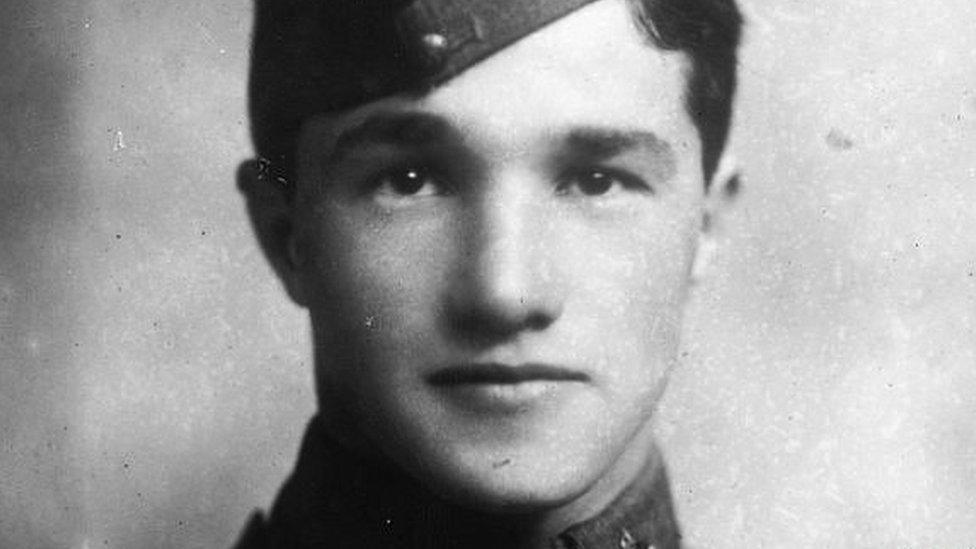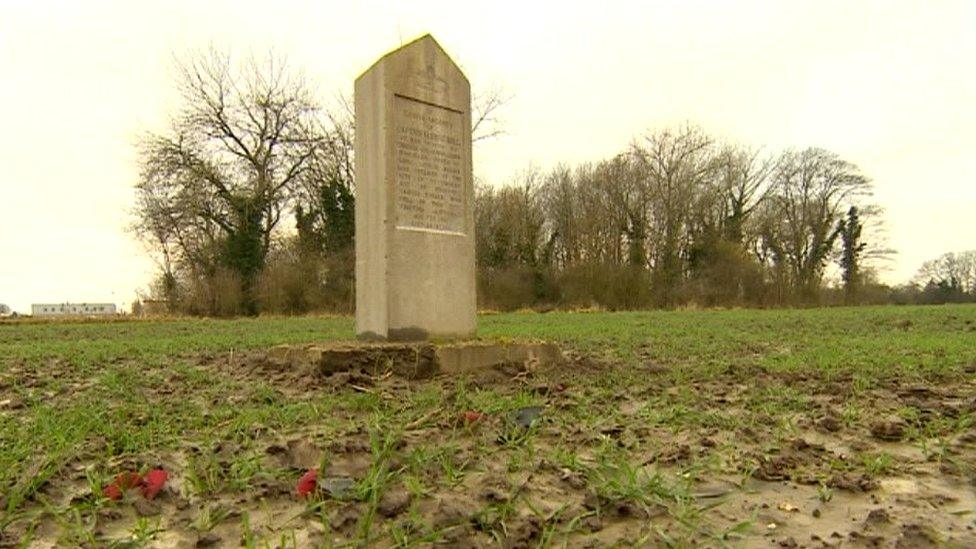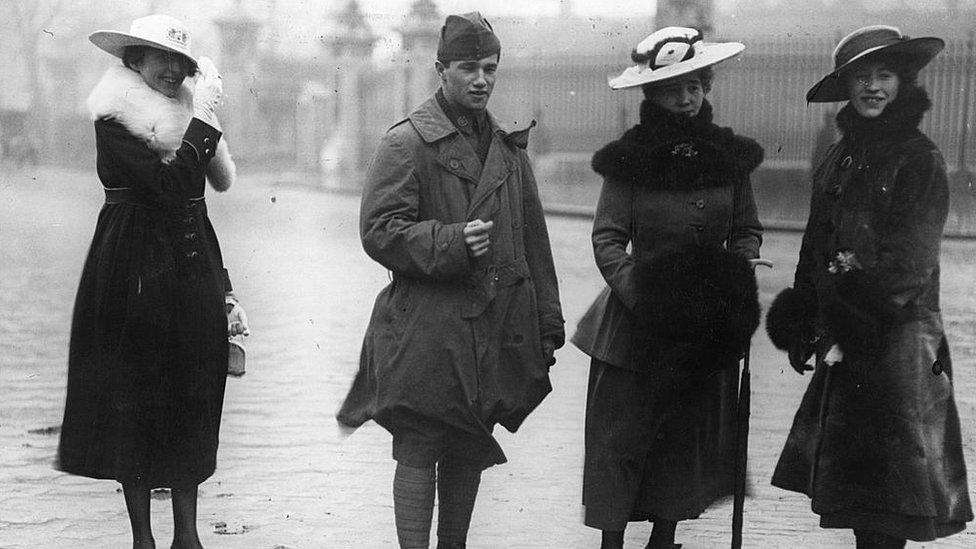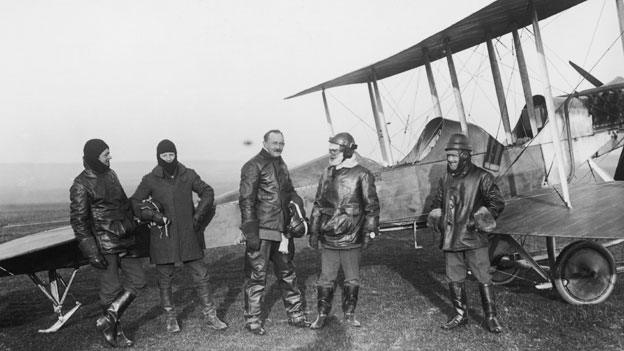War hero Albert Ball: Relatives mark centenary of death
- Published

Albert Ball was already a national hero when he died age 20 in a crash in France
The centenary of the death of a famous British wartime flying ace has been marked by relatives visiting the French cemetery where he is buried.
Capt Albert Ball, from Nottingham, was 20 when his fighter plane crashed in a French field on 7 May 1917.
He already had the Military Cross and was posthumously awarded the Victoria Cross. He was considered one of the great British pilots of World War One.
Seven of his relatives visited the cemetery in Annoeullin.

Albert Ball's father bought the crash site and set up a memorial, which still stands
He was buried there by the Germans with full military honours.
Relative Yvonne Neville said before her visit: "It will be very interesting and very touching to see (the French memorial).
"His father insisted his body should remain in that cemetery but all the other war dead were taken away… so that cemetery only has Albert as a war hero."
A service was also held at his memorial in the grounds of Nottingham Castle.
Capt Ball attended Nottingham High School where a plaque still marks his achievements and later Trent College in Long Eaton.
He was known for his "lone wolf" style of flying and attacks on multiple enemy aircraft.
He died without a shot being fired.

Albert Ball received his Military Cross from King George V at Buckingham Palace
Simon Williams from the school said: "What seems to have happened is that he got disoriented in cloud and… the plane became inverted which killed the engine.
"He (and his plane) fell out of the cloud and crashed into a field."
Capt Ball was awarded his VC for "most conspicuous and consistent bravery" and was credited with 44 confirmed and 25 unconfirmed kills.
His businessman father made sure he attended a good public school in his native Nottingham.
"Desperate to live up to his father's expectations and his own sense of duty, the war was in some ways an ideal opportunity," historian Paul Davies said.
- Published17 June 2014
